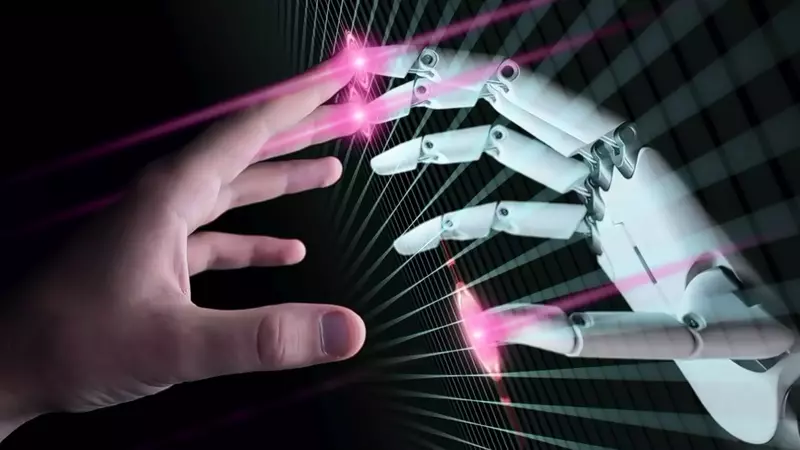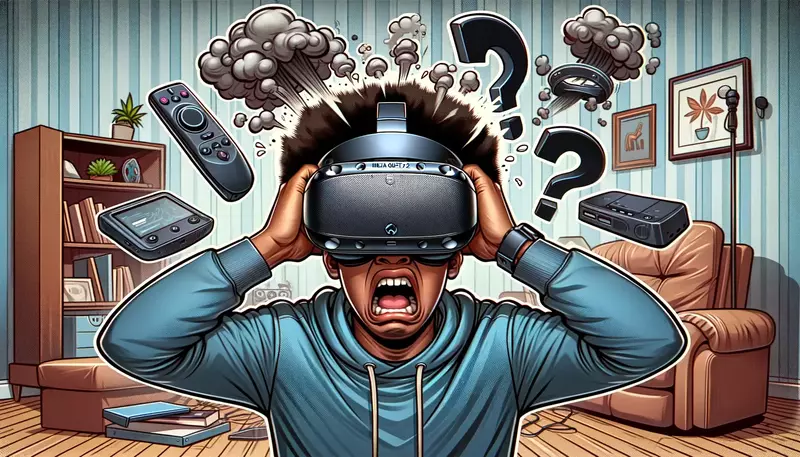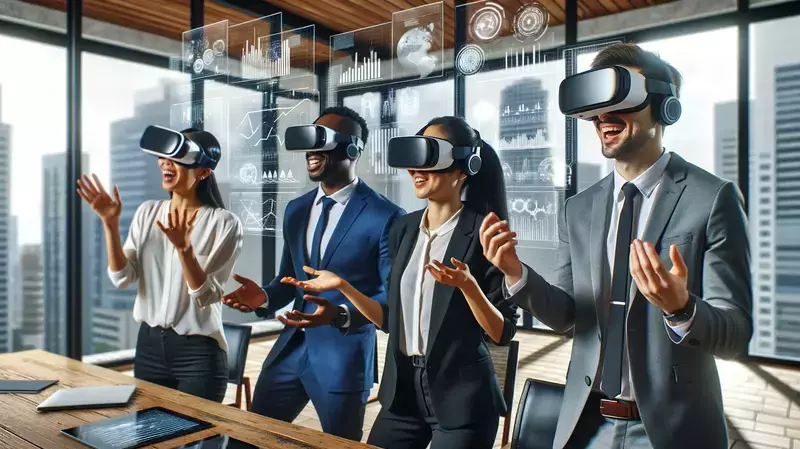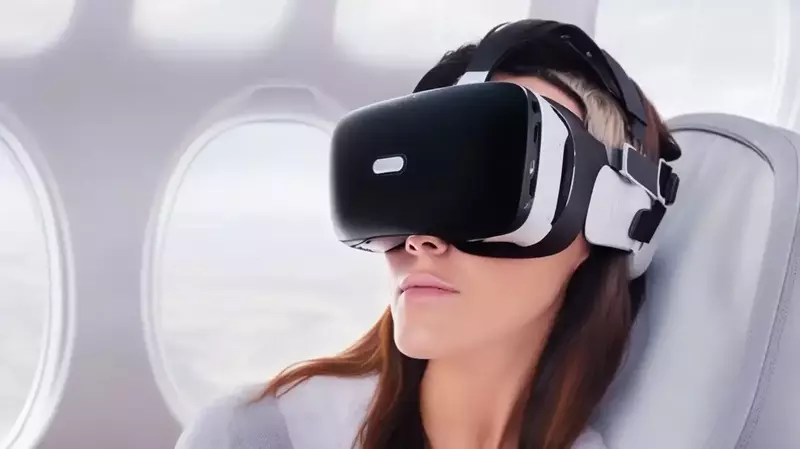This site contains affiliate links to products, and we may receive a commission for purchases made through these links.
When it comes to the world of technology, there are always new and exciting things happening. In recent years, virtual reality has taken the world by storm. But is virtual reality part of artificial intelligence?
No, virtual reality is not part of artificial intelligence. Artificial intelligence is a branch of computer science that deals with the creation of intelligent machines. Virtual reality, on the other hand, is a technology that allows users to immerse themselves in a simulated environment.
In this piece, I will be discussing the differences between virtual reality and artificial intelligence. I will also be exploring the potential uses of both technologies and how they might intersect in the future.

Is Virtual Reality Part of Artificial Intelligence?
No, virtual reality is not part of artificial intelligence. Artificial intelligence is the ability of a machine to mimic intelligent human behavior. Virtual reality, on the other hand, is a technology that allows users to immerse themselves in a simulated environment.
The two technologies are very different, but they both have the potential to change the world as we know it. Artificial intelligence has already begun to revolutionize many industries, from healthcare to transportation. And virtual reality has the potential to change the way we interact with the world around us.
It is possible that artificial intelligence and virtual reality will intersect in the future.
For example, imagine a virtual reality headset that can interpret your emotions and respond accordingly. Or a virtual assistant that uses artificial intelligence to anticipate your needs and provide you with assistance before you even ask for it.
The possibilities are endless, and it will be interesting to see how these two technologies evolve in the years to come.
READ MORE! Will True Virtual Reality Ever Exist? (Explained!)
How are AI and VR related?
You may be wondering how artificial intelligence and virtual reality are related. After all, they seem to be two very different things. But there is actually some overlap between the two fields.
Both AI and VR rely heavily on computer science and programming. And both technologies are used to create simulations of reality. So in some ways, you could say that AI and VR are two sides of the same coin.
Also, both technologies are still in their early stages of development. This means that there is a lot of potential for growth and expansion in both fields.
Can AI and VR Interact?
At present, these two computer science fields are quite separate. However, it is not hard to imagine a future in which they intersect. In fact, some experts believe that the future of artificial intelligence lies in virtual reality.
There are many ways VR and AI could interact. They include the following, among others:
- A virtual reality headset that can interpret your emotions and respond accordingly.
- A virtual assistant that uses artificial intelligence to anticipate your needs and provide you with assistance before you even ask for it.
- A virtual world that is powered by artificial intelligence, in which users can interact with intelligent avatars.
Key Differences between Artificial Intelligence and Virtual Reality
There are a few key differences between artificial intelligence and virtual reality. Here are some of the most important ones:
- Artificial intelligence is a branch of computer science that deals with the creation of intelligent machines. Virtual reality, on the other hand, is a technology that allows users to immerse themselves in a simulated environment.
- Artificial intelligence deals with logic and reasoning, while virtual reality deals with sensory experience.
- Artificial intelligence can be used to create intelligent machines, while virtual reality can be used to create immersive virtual experiences.
The Potential for Businesses to Use AI and VR to Create New Customer Experiences
It is not hard to imagine how businesses could use VR and AI to create new and unique customer experiences.
For example, a retailer could use VR to give customers a virtual tour of their store before they even step foot inside. Or a hotel could use AI to provide guests with a personalized experience based on their preferences.
Note, however, that VR and AI are not without their challenges. For businesses to successfully integrate these technologies into their operations, they will need to overcome a number of technical and logistical hurdles.
But for those who are up for the challenge, the rewards could be huge.
READ MORE! Complete List of VR Headset Specifications
The Future of Artificial Intelligence and Virtual Reality
There is no doubt that both artificial intelligence and virtual reality are technologies with a lot of potentials.
In the future, we may see these two fields intersect in ways that we cannot even imagine today. For now, we can only wait and see how these technologies evolve.
FAQs
How might the future of technology be shaped by the combination of artificial intelligence and virtual reality?
Combining these two technologies has the potential to change the way we interact with machines and computers, as well as how we experience the world around us.
For example, we could see the development of virtual reality headsets that can interpret our emotions and provide us with assistance before we even ask for it.
Or we could see the creation of intelligent avatars in virtual worlds that are powered by artificial intelligence.
What are some of the challenges businesses face when trying to use AI and VR?
Some of the challenges businesses face when trying to use AI and VR include technical issues, such as the need for high-powered computers to run VR simulations, and logistical issues, such as how to store and manage large amounts of data.
Will AI make VR better?
Yes. Integration of AI into VR has the potential to make virtual reality simulations more realistic and lifelike.
Additionally, AI can be used to create intelligent avatars in virtual worlds, which would provide users with a more immersive experience.
Final Thoughts
While VR isn’t part of AI now, it’s possible that in the future the two will merge to create new and exciting experiences.
For businesses looking to use these technologies, there are some challenges to overcome, but the rewards could be huge. So it’s definitely something worth keeping an eye on.

Espen
Espen is the Director of PursuitMeta and has written extensively about Virtual Reality and VR Headsets for years. He is a consumer product expert and has personally tested VR Headsets for the last decade.




Leave a Reply